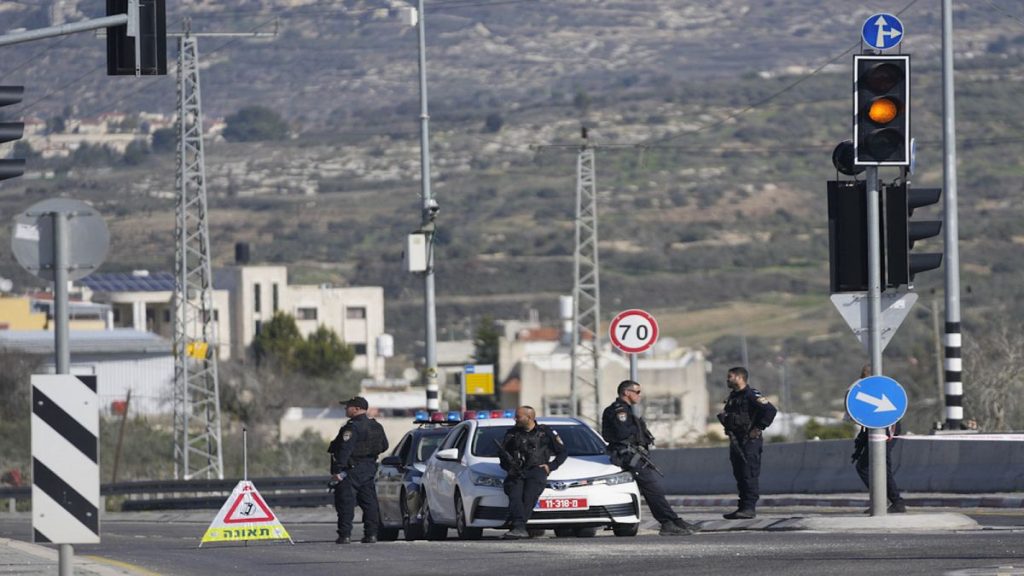The escalating Israeli-Palestinian conflict witnessed another tragic chapter on Monday with a deadly attack on a bus carrying Israelis in the occupied West Bank. Gunmen opened fire on the vehicle near the Palestinian village of Al-Funduq, situated on a major thoroughfare traversing the territory. The assault claimed the lives of three Israelis – two women and a man – and left seven others wounded, according to Israel’s Magen David Adom rescue service. The attack immediately drew a strong response from Israeli Prime Minister Benjamin Netanyahu, who vowed to pursue and punish the perpetrators, declaring that “no one will be spared.” The Israeli Defense Forces (IDF) launched a search operation for the attackers, while Hamas, though stopping short of claiming responsibility, issued a statement praising the attack. This incident further intensifies an already volatile situation marked by continuous violence and deep-seated animosity between Israelis and Palestinians.
The bus attack is not an isolated incident but rather part of a larger pattern of violence that has plagued the region for years. Palestinian militants have conducted numerous attacks against Israeli targets, reflecting the ongoing struggle for control and recognition in the contested territories. Conversely, Palestinian casualties have also mounted significantly, with the Palestinian Health Ministry reporting at least 838 deaths due to Israeli fire in the West Bank since the start of the Gaza war. This cycle of violence underscores the deep-seated animosity and the complex political landscape that fuels the conflict, making any prospects for peace elusive and challenging to achieve. The ongoing conflict in Gaza further exacerbates the situation, creating an environment of heightened tension and insecurity that spills over into the West Bank.
Adding to the existing conflict, the war in Gaza, which began approximately fifteen months ago with a large-scale surprise attack by Hamas militants, continues to rage. This initial assault resulted in the deaths of approximately 1,200 people and the abduction of around 250, with around 100 hostages still held captive within Gaza. Tragically, it is believed that at least a third of these hostages have perished. The ongoing war represents a significant humanitarian crisis, causing immense suffering and displacement for both Israelis and Palestinians. The protracted nature of the conflict and the unresolved issue of hostages further complicates any efforts towards a peaceful resolution.
Despite the grim backdrop of ongoing conflict, a glimmer of hope has emerged in the form of reported progress in ceasefire and hostage release negotiations. These long-running talks, if successful, could potentially pave the way for a de-escalation of violence and offer a much-needed respite for the beleaguered populations of both Israel and Gaza. However, the volatile nature of the conflict and the deep mistrust between the parties involved make these negotiations extremely delicate and susceptible to setbacks. Any breakthrough would require significant compromises from both sides and a genuine commitment to finding a lasting solution to the decades-long conflict.
The bus attack, occurring amidst the backdrop of the Gaza war and the ongoing negotiations, highlights the precarious nature of the situation and the ever-present risk of further escalation. The incident underscores the fragility of any progress made in the peace talks and the potential for even small incidents to reignite widespread violence. The strong response from Israeli Prime Minister Netanyahu, vowing retribution, raises concerns about potential retaliatory actions and the possibility of further escalating the conflict. The ongoing search for the attackers by the IDF could also lead to further clashes and heighten tensions in the region.
The complex and multifaceted nature of the Israeli-Palestinian conflict demands a comprehensive and multi-pronged approach to achieving lasting peace. While ceasefire and hostage release talks offer a potential pathway towards de-escalation, a sustainable solution requires addressing the underlying political and historical grievances that fuel the conflict. This includes finding a resolution to the issue of Palestinian statehood, addressing security concerns for both Israelis and Palestinians, and promoting economic development and reconciliation efforts. Ultimately, a lasting peace can only be achieved through sustained dialogue, mutual respect, and a commitment from both sides to compromise and find common ground. The international community also has a crucial role to play in facilitating negotiations, providing humanitarian aid, and promoting a just and equitable resolution to the conflict.














